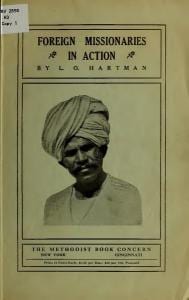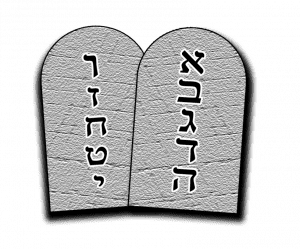 I cannot help being deeply troubled by these early chapters of the Book of Acts. I an well aware that Luke’s second volume is describing, in his unique gospel language, the rise and growth of the early Christian church. In these stirring stories, generations of Christians have discovered powerful tales that have fueled the continual spread of Christianity throughout the earth, as passionate missionaries packed their Bibles and went to places of danger and radical differences to bring what they imagined to be the Word of God to persons they felt to be in desperate need of it. Their stories are without doubt among the most astonishing tales that humans have to tell. I vividly remember the stories of several of those missionaries as told to me by one of my seminary professors, Richey Hogg, in his course “Methodism’s World Mission,” a course I took, only because I was required to, in 1969, now 52 years ago. But Professor Hogg had the class silent and anxious to hear what would happen next to those intrepid preachers as they made their 19th century way to the forests of Africa, the plains of India, and the seas of Asia to bring the news of Jesus, as they understood that news. I do not know the detailed content of the gospel they shared, but I have no doubt that it was not unlike the sermons of Peter as we hear them in the Book of the Acts.
I cannot help being deeply troubled by these early chapters of the Book of Acts. I an well aware that Luke’s second volume is describing, in his unique gospel language, the rise and growth of the early Christian church. In these stirring stories, generations of Christians have discovered powerful tales that have fueled the continual spread of Christianity throughout the earth, as passionate missionaries packed their Bibles and went to places of danger and radical differences to bring what they imagined to be the Word of God to persons they felt to be in desperate need of it. Their stories are without doubt among the most astonishing tales that humans have to tell. I vividly remember the stories of several of those missionaries as told to me by one of my seminary professors, Richey Hogg, in his course “Methodism’s World Mission,” a course I took, only because I was required to, in 1969, now 52 years ago. But Professor Hogg had the class silent and anxious to hear what would happen next to those intrepid preachers as they made their 19th century way to the forests of Africa, the plains of India, and the seas of Asia to bring the news of Jesus, as they understood that news. I do not know the detailed content of the gospel they shared, but I have no doubt that it was not unlike the sermons of Peter as we hear them in the Book of the Acts.
And therein lies for me the problem. The material in the book of the Acts is based squarely on a clearly triumphalist view of what the Jewish world should and must be like, according to the new Christians that have come to inhabit that world. It is a world where Jews have murdered the Messiah, indeed their own Messiah, and where the murder is seen to be part of the plan of God, the Jewish God whom the Jews had followed for well over a millennium. In short, these early Christians, emboldened by their belief that the murdered Jesus was in fact not dead but risen by the power of God, are proclaiming to the religious Jews of their day, late in the first century, that they have misread and thoroughly misunderstood their own scripture. It is only now, after the coming of the Messiah Jesus, that their Bible has been revealed for what it is, namely merely a prefigured announcement of this Messiah. Bits and pieces of it may have a certain value, but its primary purpose was to announce the coming of Jesus of Nazareth, despite the Jewish contention that Jesus was not their expected Messiah and that the basic purposes of their Bible was not his prefiguring but rather the purposes of YHWH for them to become light and blessing to the nations and to follow the rich Torah of YHWH as well as they could. The arrogance of these Christians is little short of breathtaking! We understand your scripture, they contend, and you do not.
And the Christians are not content merely to call the Jews murderers, though that indictment is terrible enough. They go on to say that the door to their acceptance of their own God is not closed yet, but may be opened again if they would only “repent and turn to God so that your sins may be wiped out” (Acts 3:19). That sin, we must assume, is their murder of the Messiah and their refusal to admit the murder and to further admit that they did not receive their Messiah as they should have done. Condescendingly, Peter says, “I know you acted in ignorance, as did your rulers” (Acts 3:17). You did not share the knowledge we had of your own texts, says Peter, so you may be forgiven for that ignorance. Big of him, don’t you think, to suggest that Jews who have nurtured, written, and studied the Bible for a thousand years, may be forgiven for their ignorance concerning what the book really means! But, Peter continues, if you had read it correctly you could have seen that God had the whole thing planned from the beginning. Their murder of Jesus was just part of the plan of God to have Messiah suffer, as the Suffering Servant passages of Isaiah say (Is.42, 49, 50, 52-53). You were apparently too busy trying to unravel their meanings for you when you were exiled in Babylon to hear what they were really saying about the Christian Messiah. But there is still time if you get with our program, repent of your murderous sin, and join up with us. But of course if you do not do that, “it will be that everyone who does not listen to that prophet will be utterly rooted out of the people” (Acts 3:23). You are murderers, and you are evil sinners, but if you admit that and repent, you may still find your way back to God. But if you do not, you will no longer be welcome among the people; you will in “the time of universal restoration” (Acts 3:21) no longer have any place. It is Peter’s less than subtle way of saying if you Jews do not repent and join us, you will be forever lost, banished from God for all time.
I can only hear this sermon is degrading, exclusive, and cruel. From sermons like this one from the book of the Acts has arisen the darker conclusions of the Christian tradition, those elements that have created narrow-minded exclusivism, and angry demands for toeing the narrow one-way path to God. Of course, such sermons were the life-blood of the missionaries as they ventured forth “to win the world for Christ.” But in the process of bringing Christianity to the “heathen” they too often also brought bigotry, a refusal to take seriously the deep spirituality of those to whom they were sent, and a conviction that unless those persons bought into their view of Christianity whole heartedly, they were lost for all time, not welcome into the household of God.
To be sure, many modern missionaries are little like the characterization I have just described; many today have become advocates of inclusiveness, being open to learning from the ancient traditions of the people whom they now live among. The ancient stories of Acts do not now serve as fuel for evangelistic triumphalism as once they did. Of course, I am speaking of those denominational missionaries that are sent by certain Christians, those who will not be sent at all until they demonstrate a warm and inclusive spirit. There remain any number of missionaries from more conservative, even fundamental, traditions that still show evidence of this same exclusive spirit shown by Peter and the early Christians. These missionaries remain the source of much misery and pain, and have become as well the origin of much fury and rage against those who claim to have all the truth there is, excluding any possible truths they cannot and will not understand.
I find these stories of Acts laden with frightful and dangerous implications that need no longer to be emulated by 21st century preachers. They must be approached with great care if they are not to create similar notions of superiority and exclusivism among modern-day congregations. I fear that significant numbers of people, announcing loudly that they are Christians, having imbibed at the wells of Acts and similar biblical texts, have become convinced of their own righteousness and of the sins and evil of those with whom they cannot agree. We preachers must try with all that is in us to disavow that view of the message of Christianity, a message that thrives on love for all, and withers in the message of love only for the few.
(Images from Wikimedia Commons)














